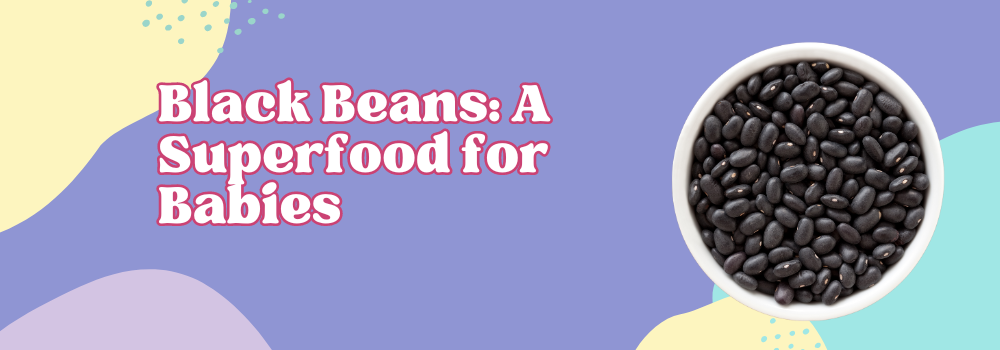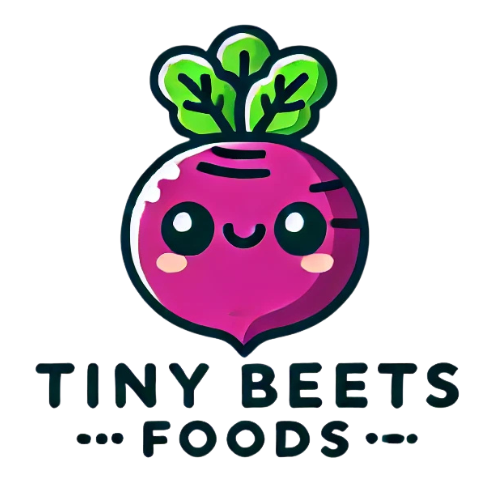
Introducing new foods to your baby’s diet is an exciting journey filled with many choices. One of the best choices you can make is incorporating black beans. These little legumes are a nutritional powerhouse and offer numerous benefits that are perfect for your baby’s growth and development. In this article, we’ll explore why black beans are a superfood for babies and how you can incorporate them into your little one’s meals.
Rich in Protein and Fiber 🌱
Black beans are an excellent source of plant-based protein and dietary fiber. Protein is essential for your baby’s growth and development, while fiber aids in healthy digestion and helps prevent constipation.
The Importance of Protein
Protein is crucial for the development of muscles, tissues, and organs. It plays a vital role in the growth and repair processes within your baby’s body. Just one cup of cooked black beans provides approximately 15 grams of protein, making them an excellent source of this essential nutrient. For babies, this means stronger muscles and healthy development.
The Role of Fiber
Fiber is important for maintaining a healthy digestive system. It helps regulate bowel movements and prevents constipation, which can be a common issue in babies transitioning to solid foods. Black beans are rich in both soluble and insoluble fiber, which supports overall digestive health and ensures that your baby’s digestive system functions smoothly.
Packed with Essential Nutrients 🥣
Black beans provide important vitamins and minerals such as iron, calcium, magnesium, and folate. These nutrients are crucial for building strong bones, supporting brain development, and maintaining overall health.
Iron for Energy and Development
Iron is essential for the production of hemoglobin, which helps transport oxygen throughout the body. Adequate iron levels are crucial for preventing anemia and supporting overall energy levels and cognitive development. One cup of black beans contains about 3.6 milligrams of iron, which is significant for a baby’s dietary needs.
Calcium for Strong Bones
Calcium is vital for the development of strong bones and teeth. Babies need sufficient calcium to ensure proper skeletal growth. Black beans contain calcium, making them a beneficial addition to your baby’s diet, especially for building a strong foundation for lifelong bone health.
Magnesium for Muscle and Nerve Function
Magnesium plays a key role in muscle and nerve function, as well as maintaining a steady heartbeat. It is also involved in over 300 biochemical reactions in the body, making it a crucial mineral for your baby’s overall health. Including black beans in your baby’s diet ensures they get a good dose of this important nutrient.
Folate for Cell Growth
Folate, also known as vitamin B9, is essential for DNA synthesis and cell growth. It is particularly important during periods of rapid growth, such as infancy. Black beans are a rich source of folate, providing about 256 micrograms per cup, which supports your baby’s growth and development.
Promotes Healthy Gut 🌿
The high fiber content in black beans supports a healthy gut microbiome, important for digestion and immune function. A healthy gut can also help prevent digestive issues in babies.
The Gut Microbiome
The gut microbiome consists of trillions of bacteria and other microorganisms that live in the digestive tract. These microorganisms play a crucial role in digestion, nutrient absorption, and immune function. The fiber in black beans acts as a prebiotic, feeding the beneficial bacteria in the gut and promoting a healthy microbiome.
Preventing Digestive Issues
A healthy gut microbiome can help prevent common digestive issues such as gas, bloating, and constipation. By including black beans in your baby’s diet, you can support their digestive health and ensure they have a smooth transition to solid foods.
Supports Heart Health ❤️
Black beans contain antioxidants and phytonutrients that help protect the heart. The combination of fiber, potassium, and magnesium in black beans contributes to maintaining healthy blood pressure and overall cardiovascular health, beneficial even from a young age.
Antioxidants and Phytonutrients
Antioxidants are compounds that help protect the body from damage caused by free radicals. Black beans are rich in antioxidants such as flavonoids and polyphenols, which help reduce inflammation and protect the heart. Phytonutrients are natural compounds found in plants that have various health benefits, including supporting heart health.
Fiber for Heart Health
The soluble fiber in black beans helps reduce cholesterol levels by binding to cholesterol particles and removing them from the body. This process helps maintain healthy cholesterol levels and supports cardiovascular health.
Potassium and Magnesium for Blood Pressure
Potassium and magnesium are essential for maintaining healthy blood pressure. Potassium helps balance the effects of sodium and relaxes blood vessel walls, while magnesium helps regulate blood pressure and supports heart function. Including black beans in your baby’s diet can contribute to a healthy heart from an early age.
Versatility in Cooking
Black beans are incredibly versatile and can be incorporated into a variety of dishes. Here are a few simple and delicious recipes to get you started:
Black Bean Puree
Ingredients:
- 1 cup of black beans
- 3 cups of water
- A pinch of cumin (optional)
Instructions:
- Rinse the black beans thoroughly under cold water.
- Combine the beans and water in a pot and bring to a boil.
- Reduce the heat and simmer for about 45 minutes to an hour until the beans are soft.
- Blend the cooked beans into a smooth puree using a hand blender or food processor.
- Add a pinch of cumin if desired.
- Allow the puree to cool before serving.
Black Bean and Sweet Potato Mash
Ingredients:
- 1 cup of black beans
- 1 sweet potato, peeled and chopped
- 3 cups of water
- A pinch of cinnamon (optional)
Instructions:
- Rinse the black beans thoroughly under cold water.
- Combine the beans, sweet potato, and water in a pot and bring to a boil.
- Reduce the heat and simmer for about 45 minutes to an hour until both the beans and sweet potato are soft.
- Blend the mixture into a smooth mash using a hand blender or food processor.
- Add a pinch of cinnamon if desired.
- Allow the mash to cool before serving.
Black Bean and Avocado Salad
Ingredients:
- 1 cup of cooked black beans
- 1 avocado, diced
- 1 small tomato, diced
- A squeeze of lime juice
- A pinch of salt (optional)
Instructions:
- In a bowl, combine the cooked black beans, diced avocado, and tomato.
- Squeeze lime juice over the mixture and add a pinch of salt if desired.
- Mix well and serve as a nutritious and tasty finger food for older babies.
Dont want to cook?
Allergies and Precautions
While black beans are generally safe for babies, it’s important to introduce them gradually and watch for any signs of allergies. Symptoms of a black bean allergy may include hives, swelling, or difficulty breathing. If you notice any of these symptoms, consult your pediatrician immediately. Additionally, ensure that the beans are cooked thoroughly to avoid any potential digestive issues.
Tips for Introducing Black Beans
Introducing new foods to your baby can be a fun and rewarding experience. Here are some tips to make the process smooth:
- Start Slow: Begin with small amounts of black bean puree and gradually increase the quantity as your baby gets used to the new taste and texture.
- Mix and Match: Combine black beans with familiar foods like sweet potatoes or carrots to make the transition easier.
- Observe and Adapt: Watch for any signs of discomfort or allergies and adjust accordingly. Every baby is different, so it’s essential to tailor the introduction to your baby’s needs.
- Stay Consistent: Consistency is key. Offer black beans regularly to help your baby develop a taste for them.
Frequently Asked Questions
Q: When can I start feeding my baby black beans?
A: Black beans can be introduced to your baby’s diet around 6 months of age, once they are ready for solid foods. Always consult your pediatrician before introducing new foods.
Q: How should I prepare black beans for my baby?
A: Black beans can be prepared in various ways, such as purees, mashes, or mixed with vegetables. Ensure they are thoroughly cooked and blended to a smooth consistency for easy digestion.
Q: Are black beans safe for babies with sensitive stomachs?
A: Yes, black beans are generally gentle on the stomach and can help prevent digestive issues due to their high fiber content. However, it’s important to introduce them gradually and observe your baby’s reaction.
Conclusion
Black beans are a fantastic addition to your baby’s diet, offering a wide range of health benefits from supporting growth and development to promoting a healthy digestive system and heart health. They are packed with essential nutrients, easy to digest, and incredibly versatile in cooking. By incorporating black beans into your baby’s meals, you are not only providing them with a nutritious food option but also laying the foundation for lifelong healthy eating habits. So, mamas, it’s time to embrace the goodness of black beans and watch your little ones thrive!
Happy feeding! 🌟
